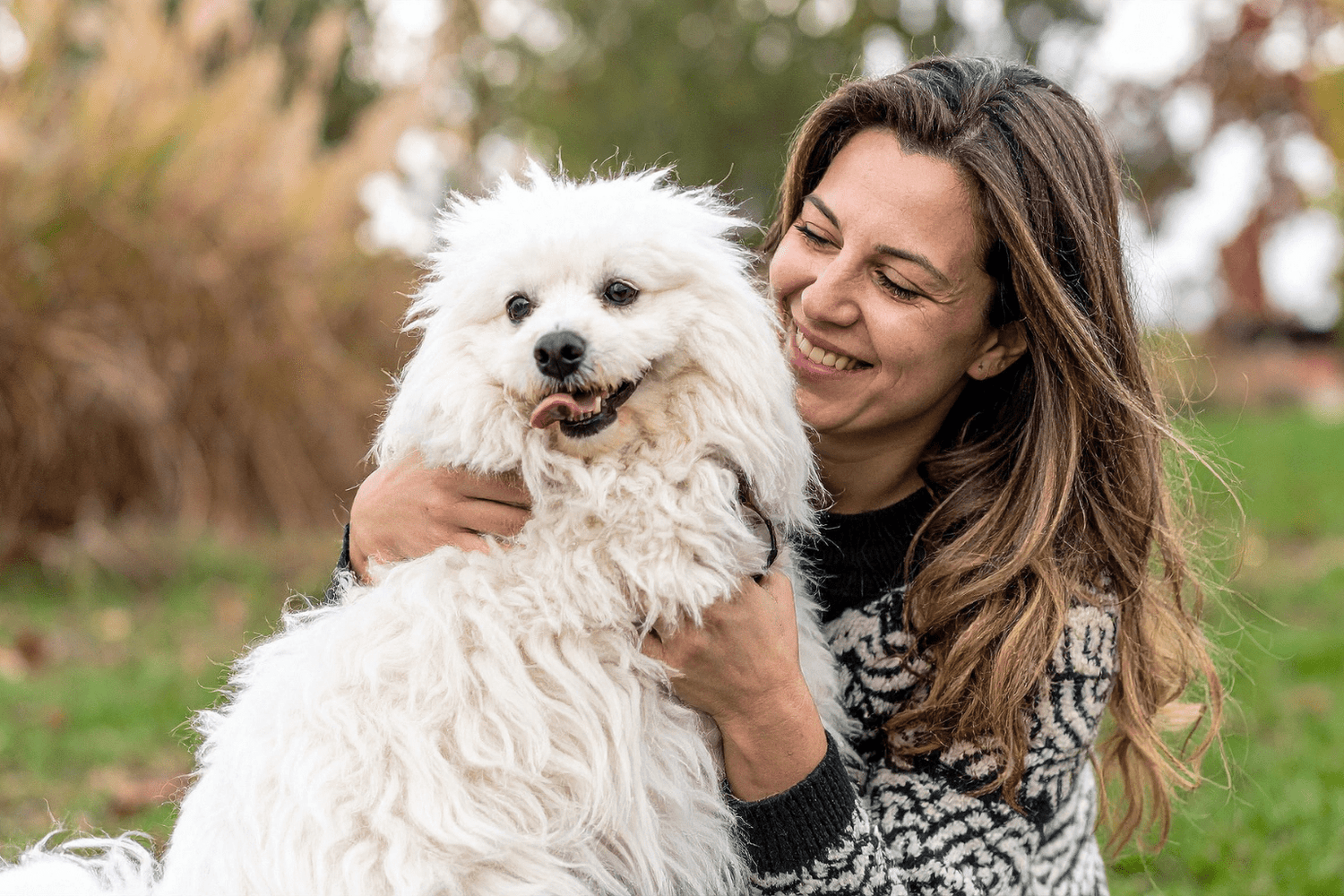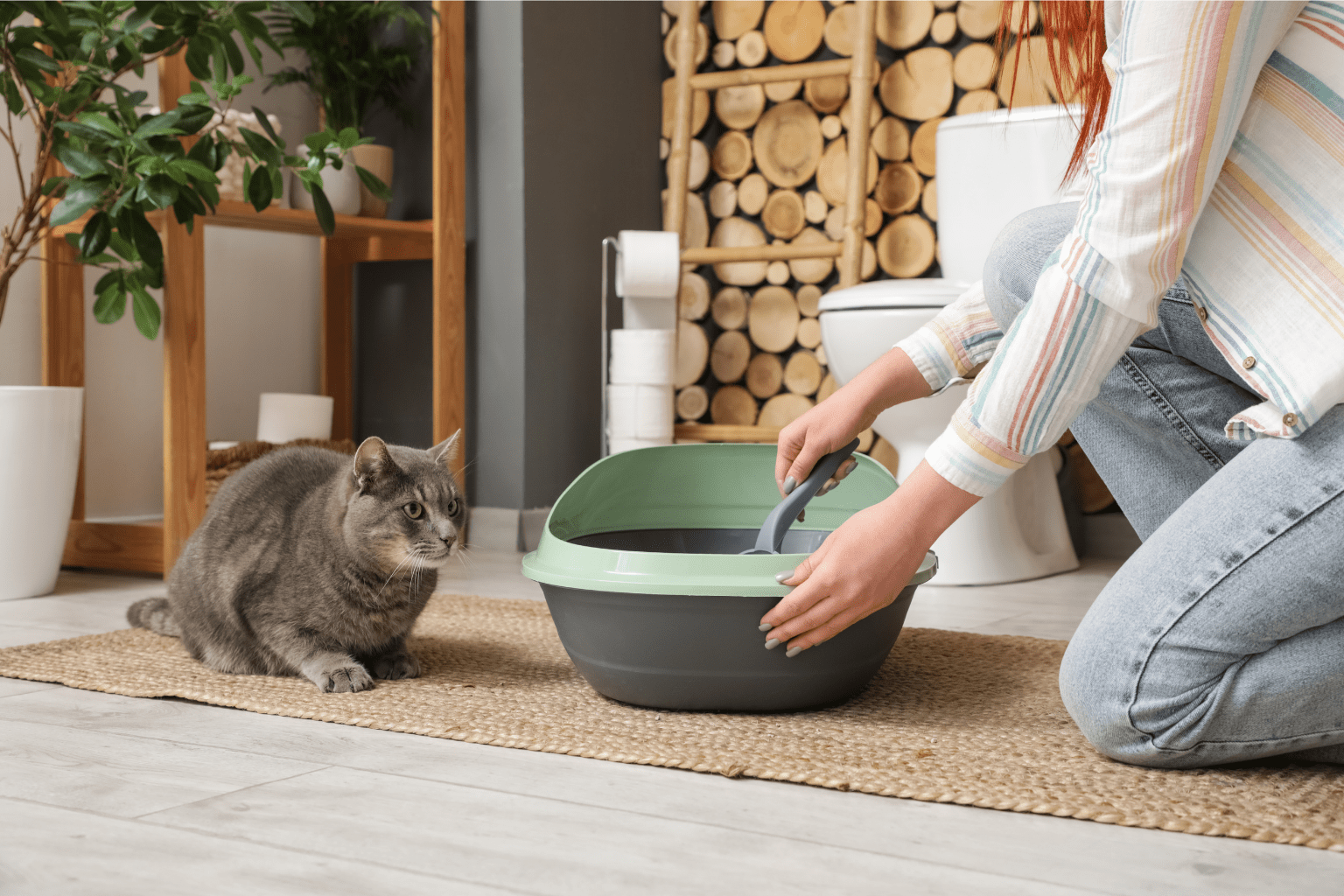Key Takeaways
- Companionship pets provide daily moments of joy and emotional connection through their presence and behaviors.
- Unlike working animals, companion pets primarily offer love and support rather than performing specific tasks.
- Humans have valued the natural wellness benefits of companion animals for over 30,000 years.
- The unconditional love from companion pets contributes positively to both physical and emotional wellbeing.
Table of Contents
- What Are Companionship Pets? The Heart of Our Human-Animal Connection
- Why Do Companionship Pets Matter? Proven Benefits for You and Your Pet
- Companion, Service, and Support Animals, Sorting Out the Differences
- Choosing Your Companion, How to Find the Perfect Pet for YOUR Life
- Daily Connections, Caring for Companionship Pets Naturally
- Safety First, Caring for Pet & Family Well-being
The Enduring Bond with Companion Pets, Your Guide to Natural Wellness & Long-Term Joy
The gentle purr of a cat, the excited tail wag of a dog greeting you at the door, the melodic chirping of a canary, these moments define what companionship pets bring to our daily lives. Unlike working animals trained for specific tasks, companion pets exist purely to share our homes, hearts, and healing journeys. For over 30,000 years, humans have recognized that animals offer something medicine can't replicate: unconditional love that naturally supports our physical and emotional wellbeing.
Whether you're considering your first pet or seeking natural ways to support your current companion's health, understanding this unique bond helps you make choices that benefit both of you. From the science behind why pets make us happier to gentle, holistic care approaches that honor their role as family members, let's explore how companionship pets transform ordinary houses into healing homes.
If you're looking to enhance your pet's wellbeing, explore BestLife4Pets Homeopathic Pet Supplements for Natural Health in Dogs and Cats for gentle, effective support. For those seeking targeted solutions, our cat and dog calming support elevates mood & provides anxiety relief can help create a more peaceful environment for both you and your companion.
What Are Companionship Pets? The Heart of Our Human-Animal Connection
Understanding the Definition & Legacy
Companionship pets are animals whose primary purpose is providing emotional support, comfort, and company to their human families. Unlike service animals trained for disability assistance or working animals with specific jobs, companion pets simply exist to be loved and to love in return. They're the family dog who sleeps at your feet, the cat who purrs through your stress, or the bird who brightens your morning routine.
This bond stretches back over 30,000 years when early humans first domesticated wolves. Ancient Egyptians revered cats as sacred companions, while Chinese emperors treasured Pekingese dogs as palace companions. What began as mutual survival evolved into something deeper, animals choosing to share our lives not for work, but for connection.
Key Distinction: Companion pets require no special training or certification. Their "job" is simply being themselves, offering comfort through presence, play, and the daily rhythms of care that ground us in purpose.
Types of Companion Animals, A Living Spectrum
Dogs remain the most popular companions, offering loyalty, active engagement, and intuitive emotional support. Cats provide independent companionship, perfect for those who appreciate quieter, self-sufficient relationships. Birds like parakeets and canaries bring vocal interaction and surprising social intelligence to homes.
Small mammals including rabbits, guinea pigs, and ferrets offer gentle, manageable companionship ideal for apartments or families with children. Fish and reptiles provide visual calm and meditative care routines that many find deeply soothing. Even horses can serve as companions when space and resources allow, offering powerful emotional connections through their sensitive, intuitive nature.
The beauty of companionship pets lies in this diversity, there's truly a companion for every lifestyle, living situation, and personality type.
Why Do Companionship Pets Matter? Proven Benefits for You and Your Pet

Mental Health Gains, for Every Family Member
Companionship pets naturally support mental wellness by triggering the release of oxytocin and dopamine, our body's own "feel-good" chemicals. Studies show pet owners experience measurably lower cortisol levels during stressful situations, while the simple act of petting an animal can reduce anxiety within minutes.
Children with ADHD often show improved emotional regulation when caring for pets, learning empathy and responsibility through daily feeding and play routines. Veterans with PTSD report that companion animals help establish healthy daily structures while providing non-judgmental emotional support during difficult moments.
The routine care that companionship pets require, feeding, grooming, exercise, creates natural anchors in our day that support mental health through purpose and predictability.
Physical Health, Moving, Sleeping, Healing Together
Dog owners walk an average of 30 minutes more per week than non-owners, according to American Heart Association research. This increased activity translates to lower blood pressure, improved cardiovascular health, and better weight management. Cat owners report improved sleep quality, often attributed to the calming vibrations of purring.
Seniors with companion pets show reduced chronic pain levels and maintain mobility longer, partly due to the gentle daily movement required for pet care. Children exposed to pets early in life develop stronger immune systems and lower rates of allergies and asthma.
These aren't just feel-good stories, they're measurable health improvements that occur naturally through the daily rhythms of life with companion animals. For more insights on the science behind these benefits, see this NIH article on the power of pets.
Social Bonds & Community Connection
Companion pets serve as natural conversation starters, helping shy individuals connect with neighbors during walks or at dog parks. Pet owners report forming lasting friendships through shared animal experiences, from puppy training classes to weekend hiking groups.
The emotional support that companionship pets provide helps many people feel more confident in social situations, knowing they have a loving, accepting presence waiting at home. This security often translates into stronger human relationships and increased community involvement.
Companion, Service, and Support Animals, Sorting Out the Differences
Clear Comparison Table: Companion vs. ESA vs. Service vs. Therapy Animal
| Type | Primary Role | Training Required | Legal Access Rights | Common Species |
|---|---|---|---|---|
| Companion Pet | Emotional support through presence | None required | Private property only | Dogs, cats, birds, small mammals |
| Emotional Support Animal | Comfort for specific mental health needs | None required | Housing accommodations with documentation | Dogs, cats primarily |
| Service Animal | Trained tasks for disability assistance | Extensive specialized training | Full public access rights | Dogs (miniature horses in some cases) |
| Therapy Animal | Comfort in institutional settings | Temperament testing and certification | Invited access to facilities | Dogs, cats, horses, rabbits |
Choosing Your Companion, How to Find the Perfect Pet for YOUR Life
Lifestyle Checklist: What to Ask Before Adopting
Activity level matching prevents frustration for both you and your pet. High-energy dogs need 60+ minutes of daily exercise, while cats typically thrive with 15-20 minutes of interactive play. Consider your current activity level honestly, a Border Collie won't be happy with someone who prefers quiet evenings, just as a low-energy senior cat might not suit an active hiking family.
Time commitment extends beyond daily care to include training, socialization, and veterinary visits. Puppies require house training for 3-6 months, while adult rescue animals may need several weeks to adjust. Budget for annual veterinary costs ($500-1500 depending on species and size), plus emergency care reserves.
Home environment factors include space, yard access, noise tolerance, and existing pets. Apartment dwellers often find success with cats, smaller dogs, or birds, while houses with yards accommodate larger, more active animals. Always consider the 10-15 year commitment that companionship pets represent. For tips on making this transition easier, check out these tips for taking care of your aging pets.
Where to Find Your Perfect Match, Adoption Sources
Animal shelters and rescue organizations offer the greatest variety of companionship pets needing homes, often with known temperaments and health histories. Many shelters provide behavioral assessments, basic training, and initial veterinary care, reducing your preparation time while saving a life.
Breed-specific rescues help match particular characteristics to your lifestyle, while shelter adoption events let you meet multiple animals in relaxed settings. Reputable breeders serve those seeking specific traits, though shelter animals often provide equally wonderful companionship with the added benefit of helping reduce pet overpopulation.
Bailey's Story: "We visited three shelters before meeting Bailey, a 3-year-old Lab mix who'd been returned twice for 'too much energy.' Turns out, he was perfect for our hiking family, he just needed the right match. Two years later, he's our adventure companion and the gentlest soul with our kids."
How to Prepare Home & Heart, Smooth Transitions
Pet-proofing begins with removing hazards at your animal's eye level, securing cables, removing toxic plants, and blocking access to dangerous areas. Set up feeding stations, sleeping areas, and litter boxes before arrival day. Stock appropriate food, toys, and comfort items to help your new companion settle in.
The "honeymoon period" typically lasts 2-3 weeks as animals adjust to new routines, sounds, and family dynamics. Expect some hiding, appetite changes, or testing of boundaries during this time. Patience and consistency create the foundation for lifelong bonds with your new companion.
Daily Connections, Caring for Companionship Pets Naturally

Creating meaningful daily routines with your companionship pets goes beyond basic feeding and walking. The most rewarding relationships bloom through consistent, gentle care that supports both physical wellness and emotional bonding.
Health Maintenance, Holistic Routines for Wellness
Daily wellness starts with simple habits: morning brushing sessions that double as bonding time, interactive play that keeps minds sharp, and quiet moments that reduce stress for both you and your pet. Regular veterinary checkups remain essential, but gentle homeopathic support can complement traditional care beautifully.
Natural wellness means working with your pet's body, not against it. Our pellet remedies dissolve easily in food or can be given directly, no wrestling with liquids or messy applications. Two pellets twice daily becomes as routine as morning coffee, supporting everything from joint comfort to emotional balance. For a comprehensive approach to joint care, explore our natural arthritis & joint care supplements for dogs & cats.
The routine that works best? Consistency over perfection. Bailey's mom found that her anxious rescue responded beautifully to the same schedule: morning pellets with breakfast, afternoon playtime, evening brushing. Within weeks, Bailey's stress signals, excessive panting and pacing, had noticeably decreased.
Real-World Troubleshooting, Common Issues & How to Help
Separation anxiety affects nearly 40% of dogs and many cats too. Signs include destructive behavior, excessive vocalization, or accidents despite house training. Start with gradual departures, leave for just 5 minutes, then 15, building confidence slowly. Natural calming support through gentle homeopathic remedies may help maintain emotional balance during this training period. For targeted relief, consider our dog anxiety & stress relief bundle or cat pet relax anxiety & stress relief remedy for your furry companions.
Behavioral challenges like hiding, aggressive play, or excessive meowing often signal stress or unmet needs. Before assuming it's "bad behavior," consider recent changes, new furniture, different schedules, or household tension. Sometimes the solution is environmental; other times, gentle constitutional support helps restore emotional equilibrium.
Max's story illustrates this perfectly. This 8-year-old tabby started hiding under beds after his family moved apartments. Within a week of starting our gentle emotional support pellets alongside patient coaxing with treats, Max emerged to reclaim his sunny windowsill spot.
Aging Gracefully, Supporting Senior Companions
Senior companionship pets deserve extra tenderness as joints stiffen and energy naturally wanes. Watch for subtle changes: slower rises from naps, hesitation before jumping, or less enthusiasm for favorite activities. These aren't reasons to panic, they're invitations to adapt care.
Gentle joint support becomes crucial around age 7-8 for larger dogs, 10+ for smaller breeds and cats. Our WALK-EASY® Hip & Joint Pain Relief pellets work naturally with your pet's healing systems, potentially easing discomfort and encouraging continued movement. The goal isn't turning back time, it's maintaining quality of life and joyful moments together. For more holistic tips, read our guide on homeopathic natural remedies for pets.
Golden-Years Gary watched his Lab, Rusty, transform from reluctant walker to eager trail companion after six weeks of consistent joint support. "He's not a puppy again," Gary shared, "but he's definitely got his spark back for our Saturday adventures."
Safety First, Caring for Pet & Family Well-being
Responsible pet companionship means protecting everyone in your household, two-legged and four-legged family members alike. Smart prevention beats reactive solutions every time.
Hygiene & Health, What Every Pet Parent Should Know
Basic hygiene prevents most pet-related health concerns. Wash hands thoroughly after handling pets, especially before eating or touching your face. Clean food and water bowls weekly with hot, soapy water. Scoop litter boxes daily, and pregnant women should delegate this task entirely.
For families with compromised immune systems or severe allergies, extra precautions help everyone coexist safely: weekly pet baths, HEPA air filters, and designated "pet-free" spaces like bedrooms. These boundaries aren't punishment, they're love in action, ensuring long-term harmony. If allergies are a concern, our cat allergy relief & immune support remedy can help your feline companions breathe easier.
- Brush pets outdoors to reduce indoor dander
- Wash pet bedding in hot water weekly
- Keep pets off upholstered furniture
- Consider breeds with lower allergen production
When Pets Need Extra Care, Signs of Stress & Fatigue
Stress manifests differently across species, but common warning signs include withdrawal from family activities, changes in eating patterns, excessive grooming or scratching, and disrupted sleep cycles. Cats might hide for hours; dogs might pace or pant without obvious cause. For a deeper dive into the science of animal stress and wellbeing, see this peer-reviewed article on human-animal interactions.
When you notice these signals, pause all non-essential activities for 24-48 hours. Cancel grooming appointments, skip training sessions, and minimize household chaos. Sometimes rest alone resolves the issue. Other times, gentle constitutional support helps restore emotional balance naturally. For more ways to celebrate the bond with your pets, read our article on how to celebrate Valentine's Day with pets.
| Species | Stress Signals | Immediate Response |
|---|---|---|
| Dogs | Pacing, panting, destructive behavior | Reduce stimulation, provide quiet space |
| Cats | Hiding, over-grooming, litter box avoidance | Maintain routine, offer high perches |
| Birds | Feather plucking, excessive vocalization | Cover cage partially, reduce noise |
| Small mammals | Decreased appetite, lethargy | Check environment temperature, offer favorites |
Not a substitute for professional veterinary advice.
Frequently Asked Questions
What is considered a companion pet?
A companion pet is an animal whose main role is to provide emotional support, comfort, and companionship to their human family. Unlike working or service animals trained for specific tasks, companion pets share love and presence, enriching daily life with their affection and natural wellness benefits.



